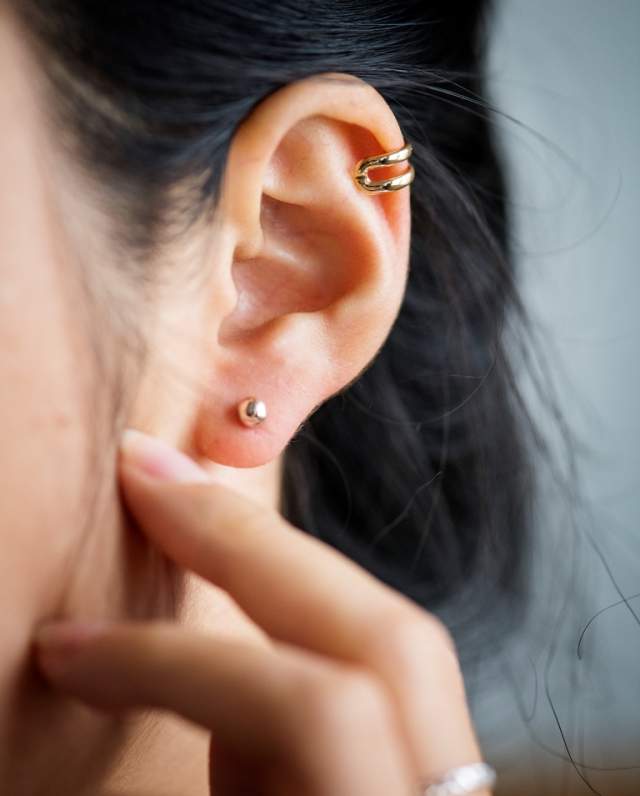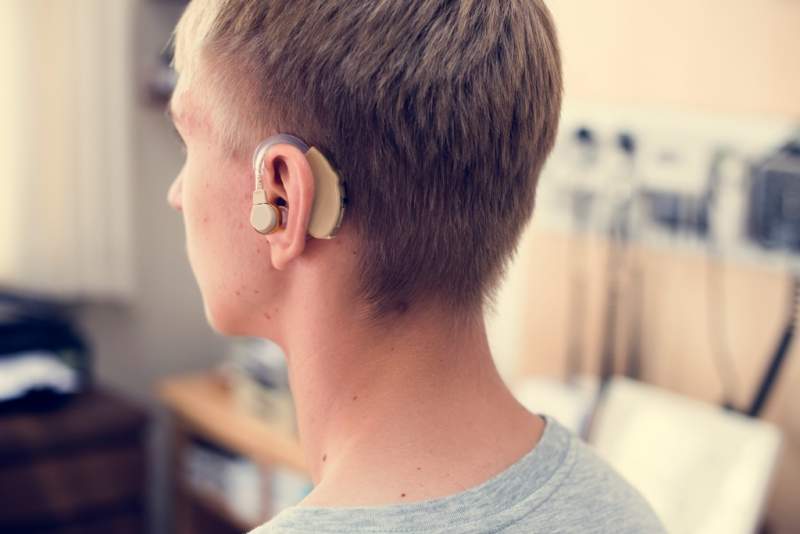For a very long time, we tend to look at hearing loss as a lesser problem compared with losing other faculties, like your sense of sight or speech abilities. People seem to treat it as more of an annoyance rather than an actual loss and that it’s vain to make it look more problematic than it is. However, these misconceptions are dangerous as they might prevent you from seeking the help that you may seriously need. In this article, we’ll be identifying some common myths about hearing loss and why they should be debunked.
Myth #1: Hearing loss only happens to old people.
 Hearing loss is commonly associated with old age. It’s true that your hearing ability can deteriorate as you age, but that doesn’t mean that young people with hearing loss don’t exist. Many factors could affect your loss of hearing, such as diseases, medications, and genetics. There’s also a growing number of cases where teens and adults are losing their hearing because of exposure to noise, needless to say, with the rise of audio technology like earbuds and headphones.
Hearing loss is commonly associated with old age. It’s true that your hearing ability can deteriorate as you age, but that doesn’t mean that young people with hearing loss don’t exist. Many factors could affect your loss of hearing, such as diseases, medications, and genetics. There’s also a growing number of cases where teens and adults are losing their hearing because of exposure to noise, needless to say, with the rise of audio technology like earbuds and headphones.
Myth #2: One good ear is okay.
 There’s a reason why humans and most species are born with two ears. One ear is not a spare for the other. Hearing with both ears lets our brain know which direction sounds are coming from and helps us isolate speech from noise, apart from other reasons. This is why it’s advised to get hearing aids for both ears even if you only have a problem with one. At the same time, one bad ear doesn’t necessarily mean that the other is “good.” It’s most likely that there are also problems with that ear, and you’re just not realizing it because it’s the only one currently working for you.
There’s a reason why humans and most species are born with two ears. One ear is not a spare for the other. Hearing with both ears lets our brain know which direction sounds are coming from and helps us isolate speech from noise, apart from other reasons. This is why it’s advised to get hearing aids for both ears even if you only have a problem with one. At the same time, one bad ear doesn’t necessarily mean that the other is “good.” It’s most likely that there are also problems with that ear, and you’re just not realizing it because it’s the only one currently working for you.
Myth #3: Your doctor would know if you have hearing problems.
 It’s highly unlikely that your doctor would know or tell you that you have problems with your hearing, especially on a routine physical checkup. Physicians would expect you to let them know of your health concerns, and only at that time would they look into it. It’s always best to get examined by trained professionals as they have a variety of tests that could identify all sorts of hearing issues. There are many clinics like Central Park ENT where you can seek the help of specialists.
It’s highly unlikely that your doctor would know or tell you that you have problems with your hearing, especially on a routine physical checkup. Physicians would expect you to let them know of your health concerns, and only at that time would they look into it. It’s always best to get examined by trained professionals as they have a variety of tests that could identify all sorts of hearing issues. There are many clinics like Central Park ENT where you can seek the help of specialists.
Myth #4: You would know it if you have hearing problems.
 Not really. Most of the time, people won’t notice that they have a poor hearing unless others point it out. Hearing loss usually happens gradually over time. Without realizing it, you could just be compensating for the issue by turning up the volume of whatever it is you’re listening to. You may also believe that other people are not speaking loudly and clearly enough or that there’s too much background noise that’s why you can’t understand what they’re saying. However, these could be signs that you’re losing your hearing, so it would be wise to get your ears checked.
Not really. Most of the time, people won’t notice that they have a poor hearing unless others point it out. Hearing loss usually happens gradually over time. Without realizing it, you could just be compensating for the issue by turning up the volume of whatever it is you’re listening to. You may also believe that other people are not speaking loudly and clearly enough or that there’s too much background noise that’s why you can’t understand what they’re saying. However, these could be signs that you’re losing your hearing, so it would be wise to get your ears checked.
Myth #5: Only severe cases need treatment.
 As with other health conditions, there are different types and degrees of hearing loss. Waiting for it to get serious before seeking medical help might be worsening a problem that could have been easily treated or prevented. At worst, you may come to a point where it could be irreversible. Don’t wait until you’ve “lost” your hearing before addressing it. Get medical help as soon as you feel something wrong.
As with other health conditions, there are different types and degrees of hearing loss. Waiting for it to get serious before seeking medical help might be worsening a problem that could have been easily treated or prevented. At worst, you may come to a point where it could be irreversible. Don’t wait until you’ve “lost” your hearing before addressing it. Get medical help as soon as you feel something wrong.
Myth #6: You need the sounds to be louder.
 As mentioned, there are many kinds of hearing loss, and these can affect different aspects of hearing aside from sounds being loud or soft. Some types of hearing loss could affect your ability to hear high or low frequencies. Some could affect the clarity of sound, which could make it seem muffled or garbled. There are also cases where you could hear ringing in your ears even though there are no sounds to be heard at all. These issues need to be addressed in specific ways and would require different kinds of treatment.
As mentioned, there are many kinds of hearing loss, and these can affect different aspects of hearing aside from sounds being loud or soft. Some types of hearing loss could affect your ability to hear high or low frequencies. Some could affect the clarity of sound, which could make it seem muffled or garbled. There are also cases where you could hear ringing in your ears even though there are no sounds to be heard at all. These issues need to be addressed in specific ways and would require different kinds of treatment.
Now that these false beliefs have been squashed, it’s important to know that hearing loss needs to be taken seriously. Over the years, experts have come up with different technologies that could treat different types of hearing problems. From conventional ones to modern and stylish hearing aids, there’s a solution that could address people’s varying needs. There shouldn’t be a reason for anyone not to seek help.
